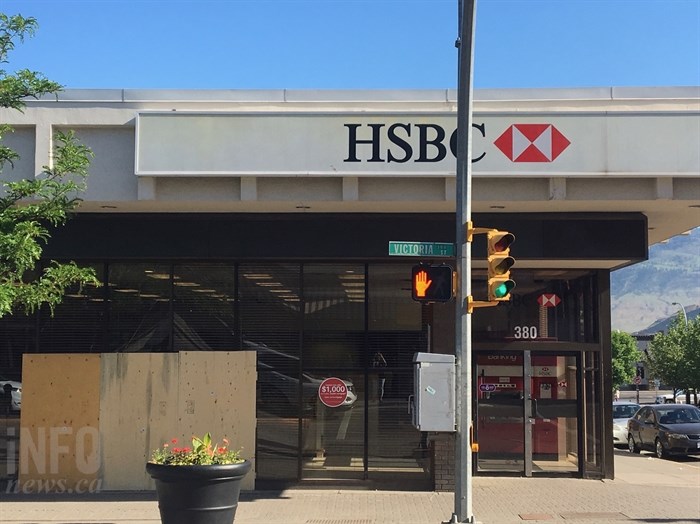
B.C.'s forensic psychiatric hospital in Coquitlam is the only one of its kind in the province.
Image Credit: B.C. Mental Health and Substance Use
October 08, 2022 - 7:00 AM
Fourteen years ago, Thomas first started noticing something wasn’t right in his head.
For the next ten years, between suicide attempts, he tried to get medical help until he finally got it four years ago. He got a diagnosis for his manic and psychotic episodes and finally has his meds balanced.
He was in a dark place we see often now in the streets of Kamloops or Kelowna or any street in B.C. — people with undiagnosed or untreated mental illnesses trying to survive.
So how did Thomas manage to get the help he needed? Simple.
He crashed his truck into several Kamloops banks and businesses in a psychotic episode.
“The only time one truly receives help for mental illness is when a criminal offence occurs and the law is forced to deal with you,” he says.
READ MORE: Mental health support for B.C. inmates 'woefully inadequate': prolific offenders study
Not that he knew that at the time. He had just moved to the Tournament Capital from Prince George, hoping for a new start. But his mind kept focussing on the banks and the 2008 financial crisis and he wanted to “get back” at them.
It wound up being his ticket home and he’s grateful for the help, but it was a difficult road and says there must be a better way for the hundreds of people every year going through B.C.’s forensic psychiatric system.
"I think it's definitely necessary in some cases. In my case it was the answer. The problem was they didn't put me on the right medication right away," he said.

Boarded up windows can be seen at the HSBC branch at Victoria Street and 4 Avenue in Kamloops, Tuesday, May 22, 2018. The man responsible was held in a hospital instead of prison after he faced more than a dozen criminal charges.
(ASHLEY LEGASSIC / iNFOnews.ca)
The first step for Thomas (not his real name) was in the courts, where he says his lawyer “convinced” him to pursue a Not Criminally Responsible Due to Mental Disorder as a defence. Had he simply pleaded guilty, he could have been out in a year, two maximum since his record is sparse.
Instead, he spent four years in custody.
"It's not a punishment," law professor Robert Diab said. "We are recognizing that... you are not not morally culpable, but we want to protect society."
Diab, who teaches at Thompson Rivers University, explained that the length of sentence varies for each offender, and it's not dependent on the seriousness of the crime.
An offender is reviewed by a board once each year to determine whether they'll be a risk to themselves and, more importantly, to the public, Diab said.
READ MORE: B.C. attorney general says increasing arrests to fight violent crime won't work
"You can end up with involvement in the criminal justice system, at least the mental health aspect, for much longer than you would have for a normal custodial term," he said.
A recent study on prolific offenders and the B.C. justice system found mental healthcare in the corrections system is "woefully inadequate" to meet the needs of its inmates.
Thomas, however, was kept in a Coquitlam forensic psychiatric hospital run by the provincial health authority.
The facility at Colony Farm Regional Park puts healthcare above all else, making sure patients are regularly visiting their psychiatrists. It's intertwined with the court system, yet it operates at an arm's length, allowing a review board of both healthcare and legal professionals to decide when an offender is fit for release.
READ MORE: Compulsory mental health treatment a 'double-edged sword' for rights of offenders
"It used to be you'd be sent to hospital due to insanity. There was no review mechanism. You'd be sent to the hospital potentially indefinitely," Diab said.
Thomas sometimes considers whether he should have continued through criminal court to end up in a correctional facility, but it's unlikely he would be as functional as he is today.
The Coquitlam hospital has 190 beds and it's the only forensic hospital in the province. Despite the mystery in sentence lengths for offenders, it allows the province to take control when an offender can't manage severe mental health issues.
Thomas said the hospital is nearly always full, as opposed to provincial correctional facilities which have been far from capacity since the COVID-19 pandemic. He lives in a halfway house with a friend, Tony (not his real name), also from the facility.
Tony was only recently released after two-and-a-half years for breaking into his parents' house and pushing his father to the ground, he said.
READ MORE: Prolific offender management teams making a return in B.C.
"My assumption was I'd be out in a couple months... (My lawyer) didn't really say how long, but he did tell me all they're going to do is adjust my meds and I'd be out," he said.
Despite spending more time at the hospital than he likely would have under a criminal sentence, Tony's not sure where else he would have gotten the treatment he needed.
"I was pretty ill at the time. Could I have gotten that same help within the prison system? Could I have done less time and gotten the same amount of help?" he said.
The mystery behind how long he would be sentenced left him "a little resentful" toward the doctors and staff at the hospital. The review decision each year can leave a patient hopeful they will be released, only to have the rug pulled out and left to spend more another year in the hospital.
"I would pace around a lot and (my doctor) assumed that was hyper-manic behaviour," Tony said, asserting that it was out of boredom in the facility after he felt his medication cleared most of the behaviour that got him into the facility.
He said he has symptoms of schizophrenia and was regularly using codeine, his drug of choice, before he was arrested.
Both of them are living on conditions of their release.
They aren't allowed to take any drugs not prescribed to them and they have to submit to urine tests. Neither can move without approval from the B.C. Review Board, which oversees patients at the forensic hospital.
Thomas, predictably, isn't allowed to drive a vehicle.
Although Thomas is restricted to only taking the medications that are prescribed to him, the order doesn't actually require that he take that medication. According to the review board order, there's nothing preventing him from refusing to take the medication.
Aside from the restrictions, Thomas is exercising and playing guitar in his free time, while he's also looking for work again.
He's been out since November on Vancouver Island, and he'll get an absolute discharge from his criminal charges once the review board decides he's ready.
That could be lifted in January 2023, but he expects he'll continue to live under conditions until 2024.
Both of them have very little criminal history in B.C., if any at all, besides the offences that got them into the hospital. Neither would be considered prolific offenders. However, the ongoing struggle with repeat offenders in B.C. is often attributed to past trauma, mental health, and problematic substance use.
It's unclear whether admissions to the forensic hospital will increase after the legal route that got them there was mentioned in the provincial study on prolific offenders, but the province will likely be studying whether more offenders should defend themselves in court as not criminally responsible due to mental disorder.
Cases referred to the review board were on the rise in 2020, the most recent publicly available statistics. That year, it took 72 cases referred by B.C. courts.
The vast majority of its 2020 caseload was from the Lower Mainland, with 82%, and 92% of the accused are male.
The hospital is the only one of its kind in the province, compared to B.C. Corrections which manages 10 facilities across the province. There's 2,400 spaces for inmates in those provincial facilities.
Although the hospital forced him to get help, it's a last resort treatment in the province and he had to commit a crime, putting the public in danger, before he got the help he needed.
"I feel that I wish I would have gone to prison, but there's nothing I can do about that now," Thomas said.
Both of them look back at their time in the hospital wishing they knew how long they'd spend in the facility, wishing there was a finish line to look forward to, but it was up to a small group of people to decide for them whether they could be released to the public without their mental illness getting the better of them.
To contact a reporter for this story, email Levi Landry or call 250-819-3723 or email the editor. You can also submit photos, videos or news tips to the newsroom and be entered to win a monthly prize draw.
We welcome your comments and opinions on our stories but play nice. We won't censor or delete comments unless they contain off-topic statements or links, unnecessary vulgarity, false facts, spam or obviously fake profiles. If you have any concerns about what you see in comments, email the editor in the link above.
News from © iNFOnews, 2022